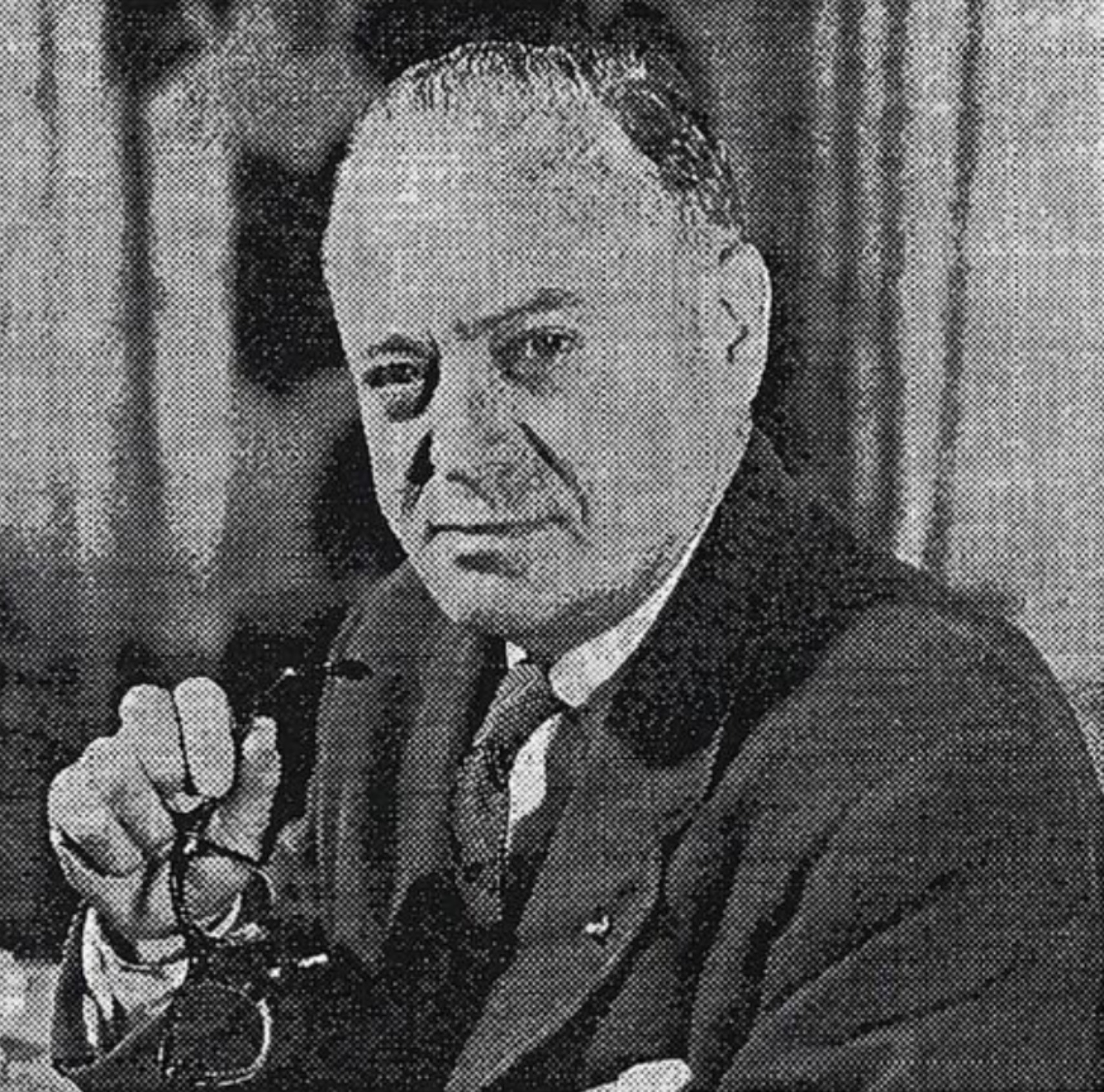Styles Bridges
Henry Styles Bridges (born September 9, 1898 in Pembroke , Washington County , Maine , † November 26, 1961 in Concord , New Hampshire ) was an American politician and governor of the state of New Hampshire from 1935 to 1937 . Between 1937 and 1961 he represented his state in the US Senate .
Live and act
Early years and political advancement
Styles Bridges, as he was called, attended local schools in his homeland and then the University of Maine until 1918 . Before embarking on a political career, he worked as a teacher, magazine publisher and banker. He was also a reserve officer in the US Army for twelve years .
Bridges was a member of the Republican Party . Between 1930 and 1934 he was a member of the New Hampshire Public Service Division , a committee that dealt with public service issues. Bridges quickly gained prestige in his party and was nominated by this in 1934 as a candidate for the gubernatorial election; victory in the general election followed in November of the same year.
New Hampshire Governor
Styles Bridges took office on January 3, 1935. During his two-year term in office, the state gradually recovered from the global economic crisis . His government took action to help needy children and disadvantaged mothers. At that time, a new unemployment insurance law was passed. In addition, a woman was appointed as a judge for the first time. Otherwise, Governor Bridges used his resources very sparingly in order to save the budget.
Bridges in the US Senate
In the 1936 election, Bridges was elected as his party's candidate for the US Senate. There he succeeded Henry W. Keyes , who had also been Governor of New Hampshire from 1917 to 1919 before his tenure as senator. After he was re-elected in the subsequent elections, Bridges could remain in Congress from January 3, 1937 until his death in 1961 . Between 1952 and 1953 he was faction leader of the Republican Senators. And from 1953 to 1955 he was President Pro Tempore chairman of that body. Bridges also chaired the Joint Committee on External Economic Cooperation. He has also served on other committees such as the Presidential Inauguration Committee, the Budget Committee, and the Republican Political Committee.
In Congress, Bridges was considered conservative to reactionary. In 1954, he forced the democratic Senator Lester C. Hunt from Wyoming to resign by threatening otherwise to make the homosexuality of his son in public. Hunt then announced his resignation and killed himself. Bridges was married three times and had three children in total. After his death, Maurice J. Murphy took his seat in the Senate.
literature
- Robert Sobel and John Raimo (Eds.): Biographical Directory of the Governors of the United States, 1789–1978. Volume 3, Meckler Books, Westport, 1978. (4 volumes.)
Web links
- Henry Bridges in the National Governors Association (English)
- Styles Bridges in the Biographical Directory of the United States Congress (English)
- Styles Bridges in the database of Find a Grave (English)
- Biography of New Hampshire (English)
| personal data | |
|---|---|
| SURNAME | Bridges, styles |
| ALTERNATIVE NAMES | Bridges, Henry Styles |
| BRIEF DESCRIPTION | American politician |
| DATE OF BIRTH | September 9, 1898 |
| PLACE OF BIRTH | Pembroke , Maine |
| DATE OF DEATH | November 26, 1961 |
| Place of death | Concord , New Hampshire |



